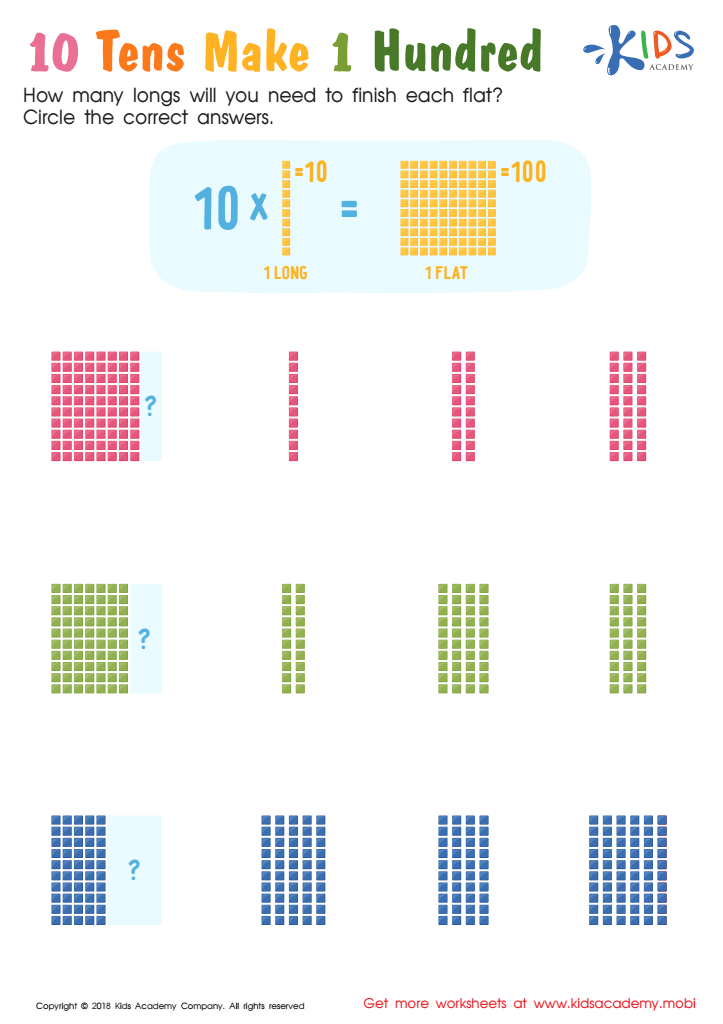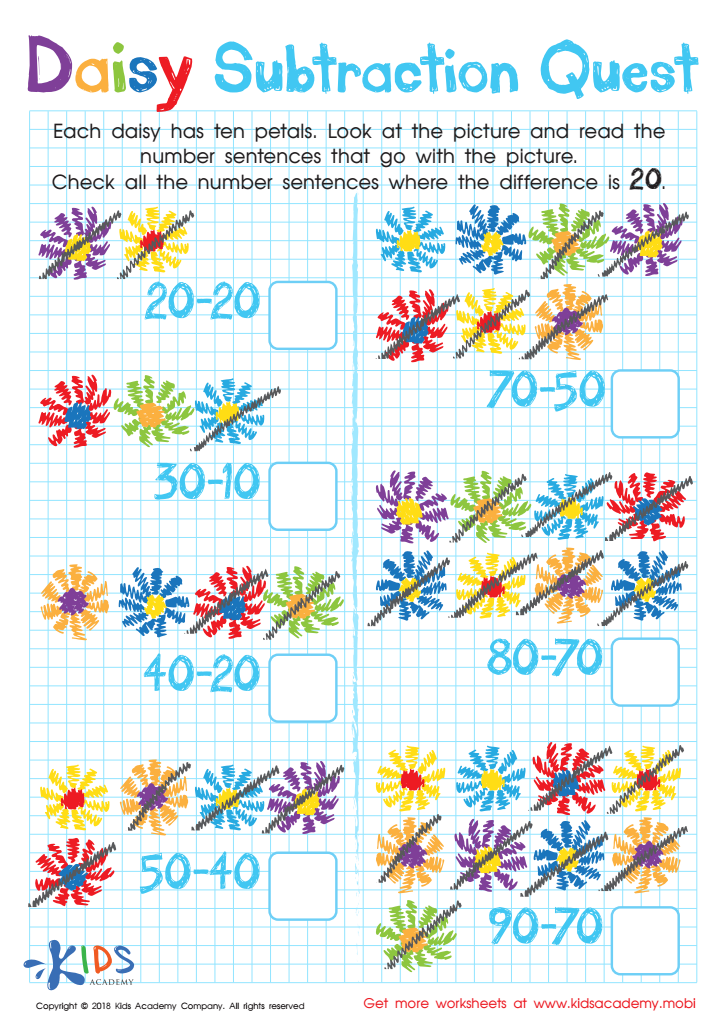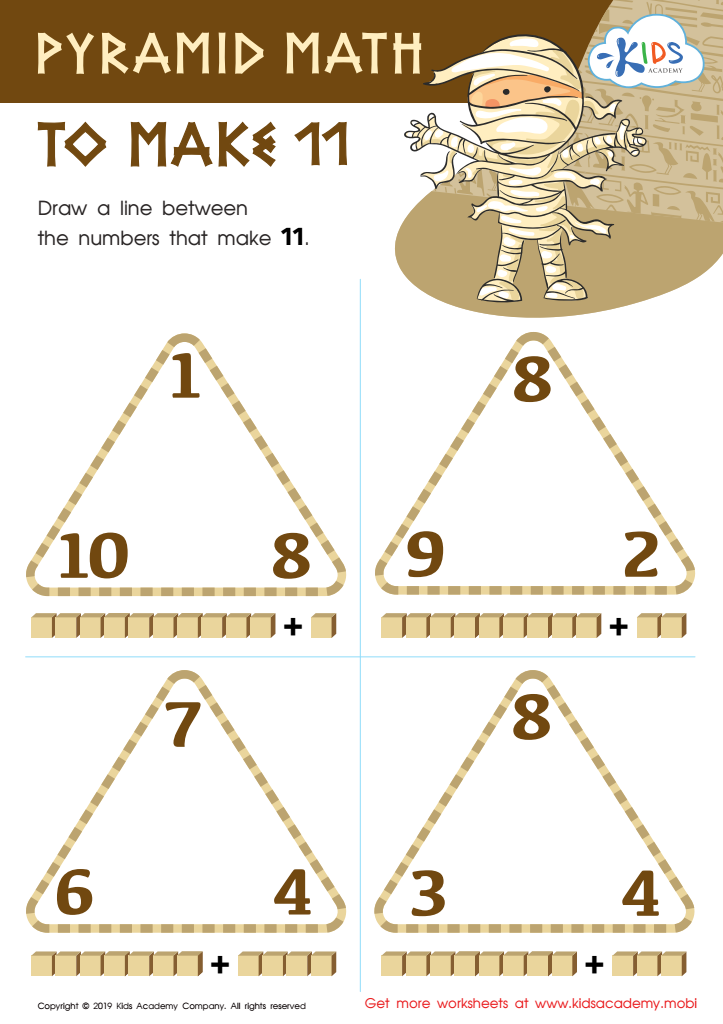Understanding number relationships Normal Math Worksheets for Ages 5-9
3 filtered results
-
From - To
Explore our "Understanding Number Relationships" worksheets, designed specifically for children aged 5-9. These engaging, printable resources help young learners grasp essential math concepts, such as comparing numbers, identifying patterns, and recognizing relationships between numbers. With a variety of fun activities and exercises, students will build a strong foundation in numeracy skills while enhancing their critical thinking abilities. Our worksheets promote interactive learning, allowing children to visualize and manipulate numbers easily. Ideal for both classroom settings and at-home practice, these resources ensure your child develops confidence and competence in understanding number relationships. Begin your child's mathematical journey with our comprehensive worksheets today!


10 Tens Make 1 Hundred Worksheet


Daisy Subtraction Quest Worksheet


Pyramid Math to Make 11 Worksheet
Understanding number relationships is fundamental for children aged 5-9 as it lays the groundwork for their mathematical journey. For parents and teachers, promoting this understanding is crucial for several reasons.
Firstly, mastery of number relationships helps children develop a strong number sense, enabling them to recognize patterns, understand quantities, and grasp basic mathematical operations. This skill facilitates mental math, making calculations smoother and fostering confidence in problem-solving.
Secondly, educating children about number relationships encourages critical thinking. By exploring how numbers interact, students learn to make connections, compare values, and understand greater than or less than concepts. This sets the stage for more complex math concepts later on, like addition, subtraction, and even fractions.
Lastly, fostering an early interest in math positively impacts children’s attitudes towards the subject. When young learners engage with numbers meaningfully, they view math as an exciting puzzle rather than a daunting task. It can help reduce math anxiety, making them more eager to tackle challenges as they grow.
Incorporating these concepts into the curriculum ensures children are not merely memorizing numbers but are understanding the active relationships that numbers have in the world around them. This foundation is essential for long-term academic success.

 Assign to My Students
Assign to My Students
















